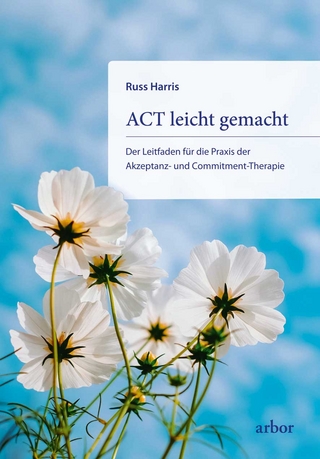
Complexities in Obsessive Compulsive and Related Disorders
Oxford University Press Inc (Verlag)
978-0-19-005277-5 (ISBN)
Obsessive-Compulsive and Related Disorders (OCRDs) have received considerable attention over the past two decades culminating with the inclusion of a new classification category of "Obsessive-Compulsive and Related Disorders" (OCRDs) in DSM-5. This group of conditions includes OCD along with two newly minted conditions (Hoarding Disorder and Excoriation Disorder) and others previously classified as Somatoform Disorders (Body Dysmorphic Disorder) and Impulse Control Disorders (Hair Pulling Disorder). The implications for research on these conditions, as well as their relations with one another, are significant since their aggregation is based on putative central mechanisms with limited empirical support to date. Indeed, the past decades have seen a dramatic surge in research on OCRDs. Such scholarship has occurred across several domains including clinical phenomenology, assessment, and psychological therapies. A complete synthesis of the emerging data across these domains would be beyond the scope of a single journal article or series of articles while having the ability to comprehensively discuss advances in the field and stimulating in these areas
Many of the available textbooks, although meritorious in their own right, are outdated and do not address the most recent research advances and emerging clinical implications. Indeed, the past decade has seen a tremendous growth in knowledge on treatment, assessment, treatment augmentation, and basic science that is not contained fully within existing volumes (see discussion of specific texts further below). Thus, providing a comprehensive textbook that addresses recent advances will provide a much needed update to the field of OCRDs. Furthermore, recent texts primarily address OCRDs from a biological standpoint, neglecting psychosocial theoretical and intervention approaches that enjoy the most empirical support of any conceptual and treatment approaches for most of the relevant conditions. As a result, the literature has been dominated by a single predominant perspective, which does not fully represent the available data or perspectives of front-line clinicians and researchers alike. As researchers and clinicians will be increasingly focused on this topic in light of the changes to DSM-5 - together with the dearth of current objective available information - this book will be a timely addition to the literature in guiding clinicians in advances in OCRDs that will impact their practice. Third, a number of conditions outside the OCRD chapter in DSM-5 are often proposed as "related" to OCD (e.g., misophonia).
Eric A. Storch, PhD, holds the McIngvale Presidential Endowed Chair and is a Professor in the Department of Psychiatry & Behavioral Sciences at Baylor College of Medicine. He has published over 750 peer-reviewed journal articles and book chapters, and Dr. Storch has edited or co-edited 20 books dealing with treatment of complex cases in children, clinical complications in the assessment and treatment of anxiety disorders, obsessive-compulsive disorder, and childhood anxiety. He has received grant funding for his work in OCD, related disorders (e.g., tics), and anxiety in youth with and without ASD from the National Institutes of Health, CDC, Agency for Health Care Research and Quality, International Obsessive Compulsive Foundation, Tourette Syndrome Association, and National Alliance for Research on Schizophrenia and Affective Disorders. He is considered an international leader in the nature and treatment of pediatric and adult OCD and related conditions. Jonathan S. Abramowitz, Ph.D. is Professor and Associate Chair of Psychology, and Research Professor of Psychiatry at the University of North Carolina (UNC). He is also the Director of the UNC Anxiety and Stress Disorders Clinic. His research and clinical interests are focused on the nature and treatment of obsessive-compulsive disorder (OCD) and other problems related to anxiety and fear. Dr. Abramowitz has published over 250 research articles, books, and book chapters and he is Editor-in-Chief of the Journal of Obsessive-Compulsive and Related Disorders. His service and contributions to the field have been recognized through awards from the Mayo Clinic Department of Psychiatry and Psychology, Division 12 of the American Psychological Association, the National Institute of Mental health, and the International Obsessive-Compulsive Disorder Foundation. Dean McKay, PhD is a Professor in the Department of Psychology at Fordham University and is current President of the Society for a Science of Clinical Psychology. He is Associate Editor of Behavior Therapy, Behaviour Research and Therapy and Journal of Obsessive-Compulsive and Related Disorders. He has edited or co-edited 19 books addressing the treatment of complex cases in children and adults, obsessive-compulsive disorder, disgust in psychopathology and research methodology, and published over 250 journal articles and book chapters. Dr. McKay serves on the Scientific Council of the Anxiety and Depression Association of America (ADAA), as well as on the Scientific Advisory Board of the International Obsessive Compulsive Disorder Foundation (IOCDF). His research has focused primarily on Obsessive-Compulsive Disorder (OCD), the role of disgust in psychopathology, and most recently on selective sound sensitivity (also known as Misophonia).
1. Introduction: What is OCD? What Is Not? and Why This Book?
Jonathan S. Abramowitz, Dean McKay, and Eric A. Storch
2. Body Dysmorphic Disorder
Sophie C. Schneider, Amita Jassi, Lauren Peile, D. Luis Ordaz, and Eric A. Storch
3. Hair Pulling Disorder
Kara N. Kelley, Devin Dattolico, Caroline Strang, and Martha J. Falkenstein
4. Excoriation Disorder
Hae-Joon Kim, Kelsey L. Luks, Ana Rabasco, Justyna Jurska, and Margaret Andover
5. Hoarding Disorder
Blaise Worden and David F. Tolin
6. Misophonia an Obsessive-Compulsive Disorder?
Lisa Clark and Dean McKay
7. Orthorexia Nervosa and the Use of Exposure and Response Prevention to Treat Eating-Related Obsessions and Compulsions
Hana F. Zickgraf
8. Sensory Processing and Intolerance in Obsessive-Compulsive Disorder
Katherine A. Collins, Stephanie J. Grimaldi, and Emily R. Stern
9. Incompleteness, Not Just Right Experiences, and Reward Sensitivity in Obsessive-Compulsive Disorder
Charlene Minaya and Dean McKay
10. The Hunt for Perfect Jolly Green: Examining the Complex Relationship between Obsessive-Compulsive Disorder and Substance Use
Charlene Minaya and Dean McKay
11. Stress, Trauma, and Obsessive-Compulsive and Related Disorders (OCRDs)
Jennifer Forte, Christal L. Badour, C. Alex Brake, Jordyn M. Tipsword, and Thomas G. Adams, Jr.
12. Tourette's Disorder
Kesley Ramsey and Joseph F. McGuire
13. Pediatric Acute-Onset Neuropsychiatric Syndrome: Diagnostic and Therapeutic Considerations with Abrupt Onset OCD
Kirti Saxena, Sherin Kurian, Johanna Saxena, and Eyal Muscal
14. Postpartum Obsessive-Compulsive Disorder
Nichole Fairbrother, Fiona L. Challacombe, Fanie Collardeau, and Thanh Thuy Truong
15. The Inhibitory Learning Approach to Exposure and Response Prevention for OCD
Samantha N. Hellberg, Heidi J. Ojalehto, Jennifer L. Buchholz, and Jonathan S. Abramowitz
16. Childhood Obsessive-Compulsive and Related Disorders
Andrew G. Guzick, Sophie C. Schneider, and Eric A. Storch
17. Technology-based Psychotherapies for OCD
Terri L. Fletcher, Anthony H. Ecker, Derrecka M. Boykin, Darius B. Dawson, Fenan Rassu, and Natalie E. Hundt
18. Co-Occurrence of Obsessive-Compulsive Disorder and Autism Spectrum Disorder: Differentiation, Assessment, and Treatment
Saashi A. Bedford, Michelle Hunsche, and Connor M. Kerns
19. Acceptance and Commitment Therapy for Obsessive-Compulsive and Related Disorders
Jennifer Krafft, Julie M. Petersen, and Michael P. Twohig
20. Couple-Based CBT for OCD
Jennifer L. Buchholz, Jonathan S. Abramowitz, Samantha N. Hellberg, and Heidi J. Ojalehto
21. Advances in Treating non-OCD Obsessive-Compulsive and Related Disorders
Abel S. Mathew, Ivar Snorrason, Martha J. Falkenstein, and Han-Joo Lee
22. Distress Tolerance
Shannon M. Blakey and Megan K. Lanier
23. Prevention of OCD
Shiu F. Wong, John H. Riskind, and Frederick Aardema
| Erscheinungsdatum | 05.10.2021 |
|---|---|
| Verlagsort | New York |
| Sprache | englisch |
| Maße | 246 x 165 mm |
| Gewicht | 839 g |
| Themenwelt | Sachbuch/Ratgeber ► Gesundheit / Leben / Psychologie ► Psychologie |
| Geisteswissenschaften ► Psychologie ► Angst / Depression / Zwang | |
| Geisteswissenschaften ► Psychologie ► Klinische Psychologie | |
| ISBN-10 | 0-19-005277-5 / 0190052775 |
| ISBN-13 | 978-0-19-005277-5 / 9780190052775 |
| Zustand | Neuware |
| Haben Sie eine Frage zum Produkt? |
aus dem Bereich


